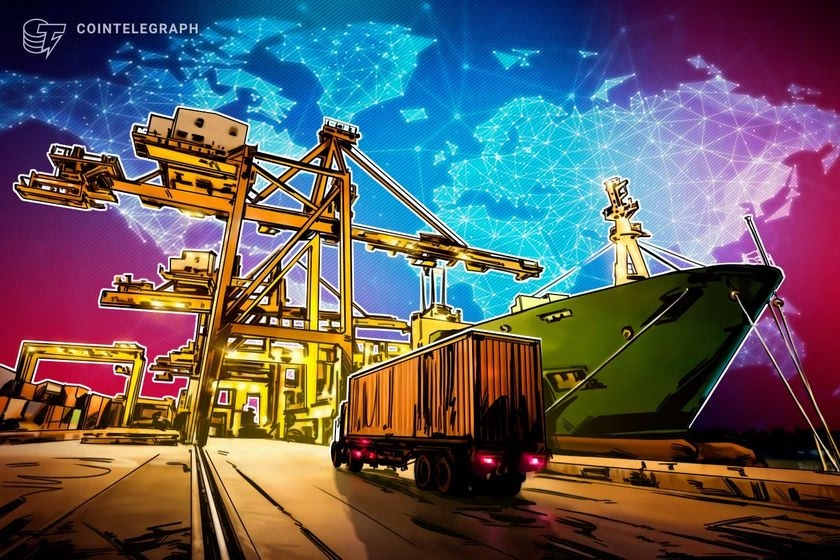In the face of escalating trade wars, the cryptocurrency landscape is undergoing significant transformations, with blockchain technology emerging as a potential solution for many challenges. Executives at Truebit believe that the current environment creates a unique opportunity for governments to embrace Web3 technologies that enhance transparency and trust in global trade practices.
Recently, President Donald Trump’s announcement on imposing sweeping tariffs on U.S. imports has set off a wave of retaliatory threats from other nations. While the U.S. government has paused tariffs for certain countries, the looming specter of a global trade war has intensified discussions about using blockchain to ensure fairness in how tariffs are applied. Federico Kattan, Chief Technology Officer at Truebit, stated that blockchain can play a critical role in proving the provenance of goods, asserting, “it can help you prove provenance […] proving the chain of custody.” This sentiment underscores the growing intersection between blockchain technology and international trade policies.
For instance, companies that package products in low-tariff countries may benefit from reduced duties when importing into the U.S. However, the integrity of such practices can be threatened without proper verification. Blockchain, by recording every transaction on an immutable public ledger, enhances supply chain transparency, limiting the risk of fraud across trillions of dollars in imported goods. With Trump’s tariffs potentially impacting an astonishing $2.4 trillion worth of imports, establishing the real origins of products becomes vital.
Truebit is not only focused on enhancing trust across various applications; they are also engaging with software vendors to interface with the U.S. government. As they work on a European Union-funded project exploring the potential of Web3 in global supply chains, CEO Jason Teutsch remarked, “We’re not yet talking directly to governments, but to the software vendors trying to interface with them — because that’s where we want to be.” This strategic approach underlines their commitment to integrating blockchain solutions into government processes, potentially reshaping how trade regulations are enforced.
However, while these advancements hold promise, there are significant risks associated with ongoing trade tensions. Several blockchain executives, including Nicholas Roberts-Huntley, CEO of Concrete & Glow Finance, have cautioned that aggressive tariffs could hinder the integrity and accessibility of blockchain networks. The uncertainty resulting from such policies could disrupt the physical infrastructure of networks and lead to fragmented regulatory environments. As Roberts-Huntley explains, “Aggressive tariffs and retaliatory trade policies could create obstacles for node operators, validators, and other core participants in blockchain networks.” Thus, while blockchain presents innovative solutions for trade verification, it is imperative to remain mindful of the landscape’s complexities.
In conclusion, as trade wars evolve, the implications for blockchain technology are profound. The potential for fostering transparency and verification in global trade is enormous, yet the challenges presented by tariffs cannot be overlooked. The cryptocurrency community faces an urgent need to advocate for solutions that protect the interests of all participants in this uncharted territory.



